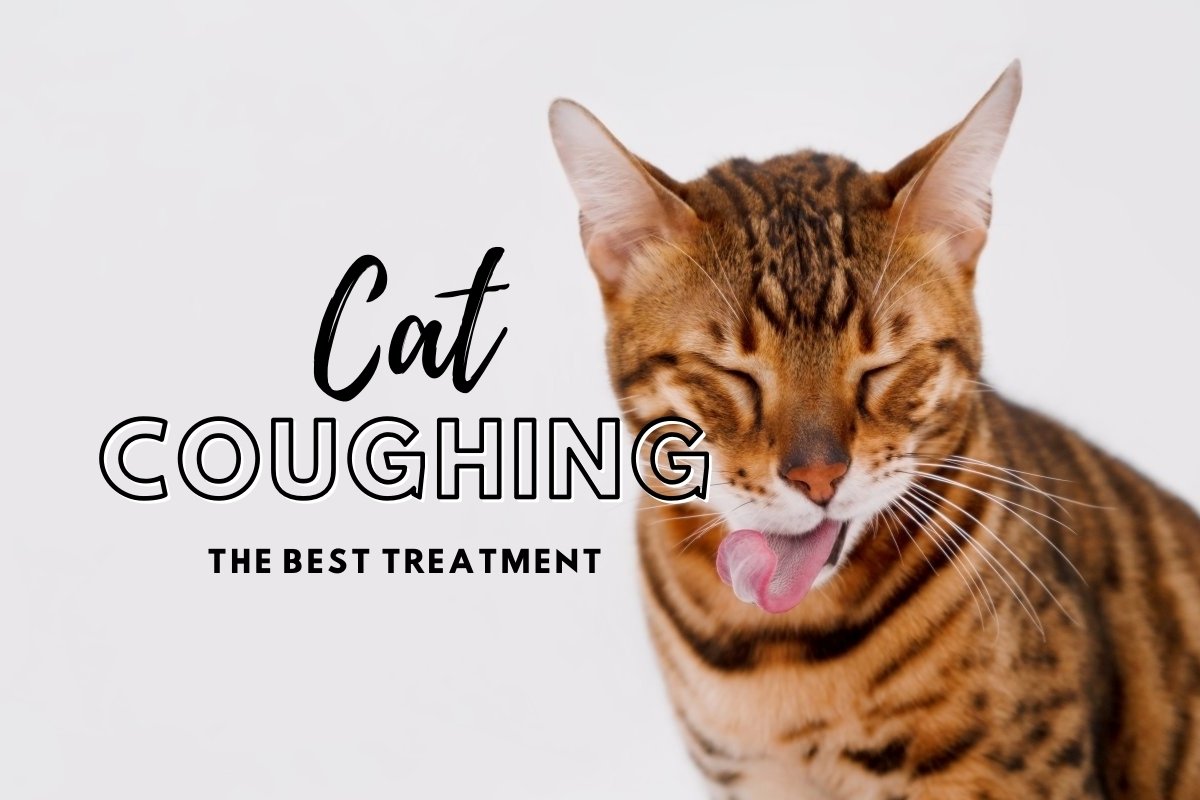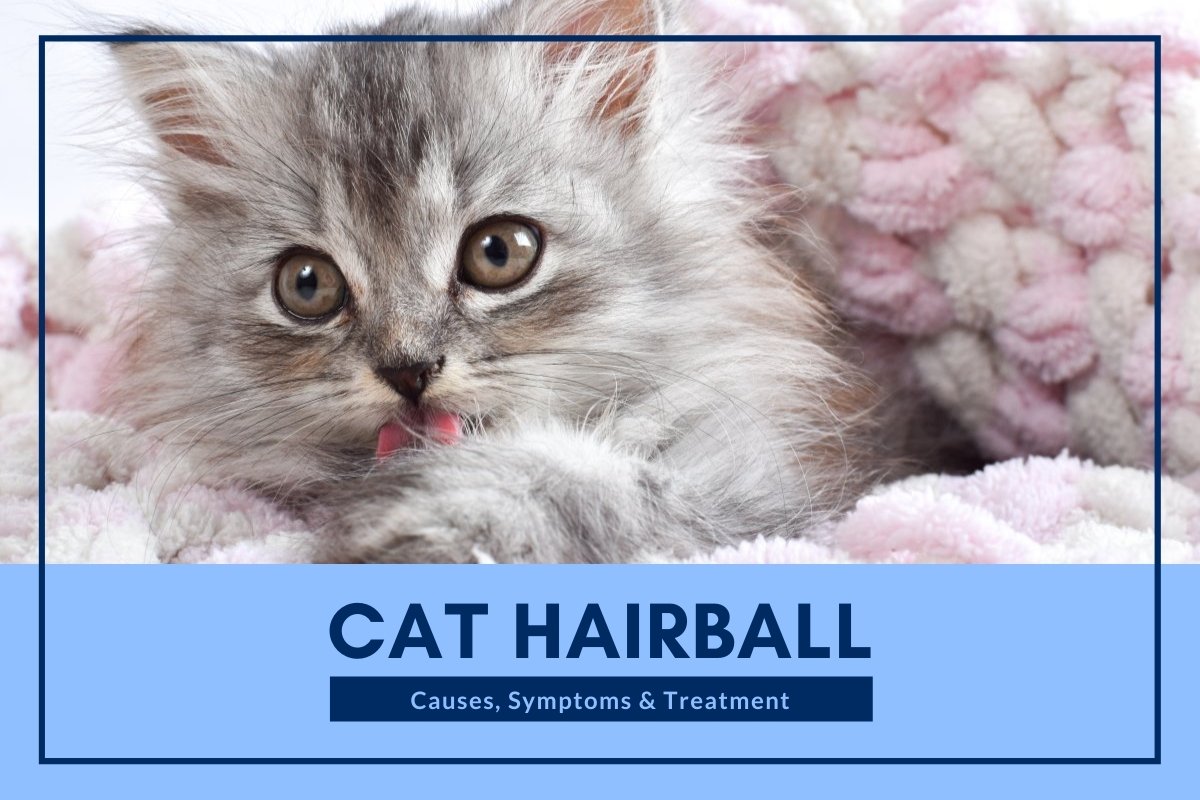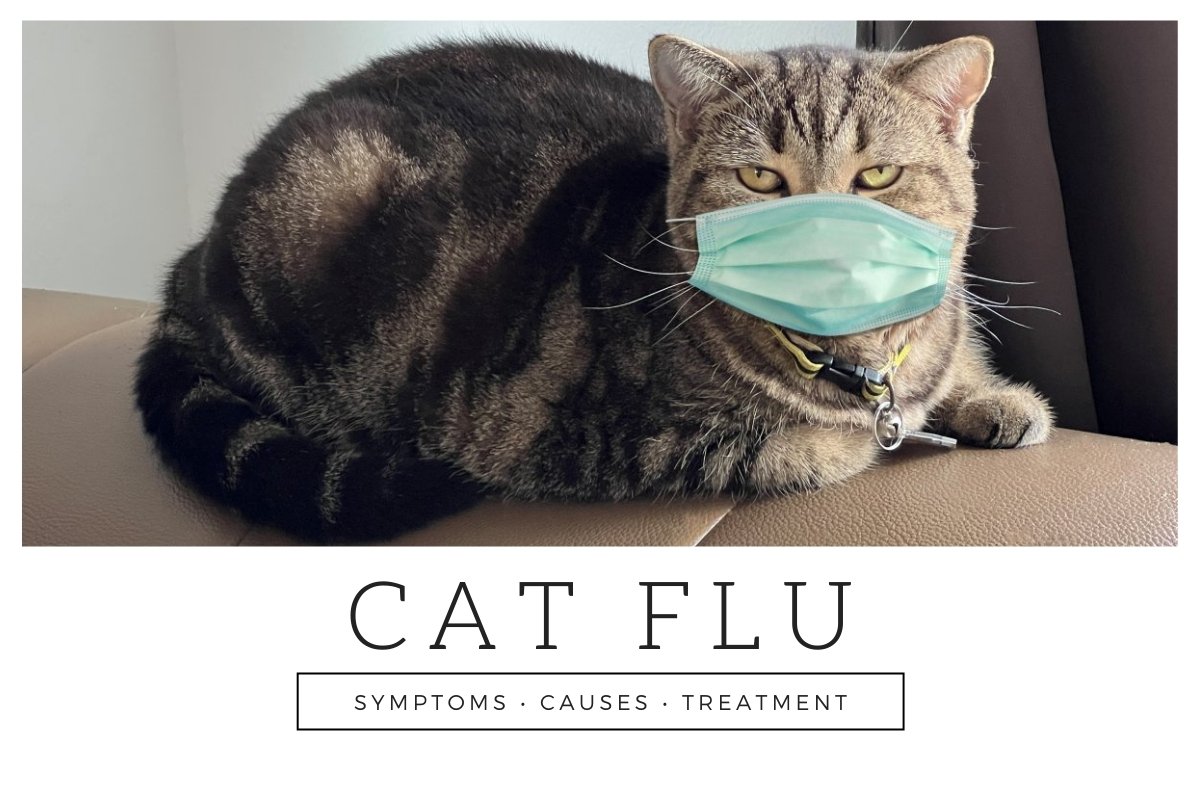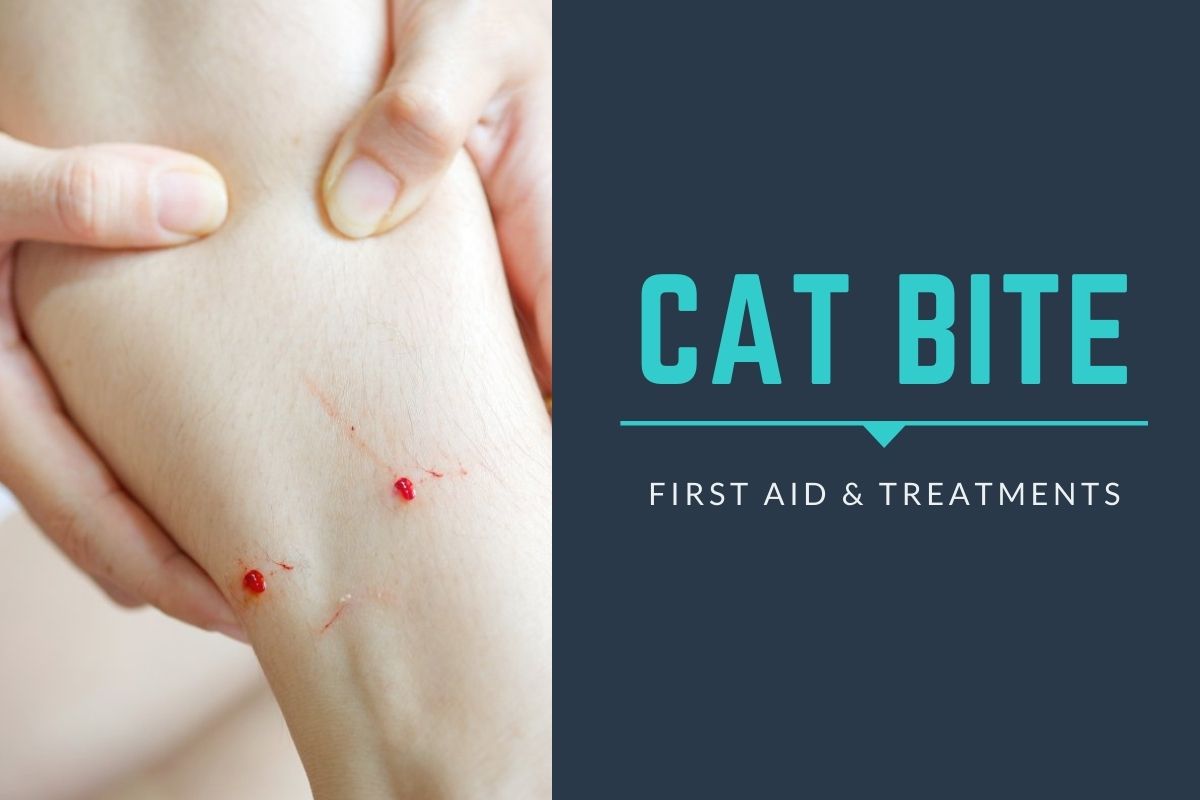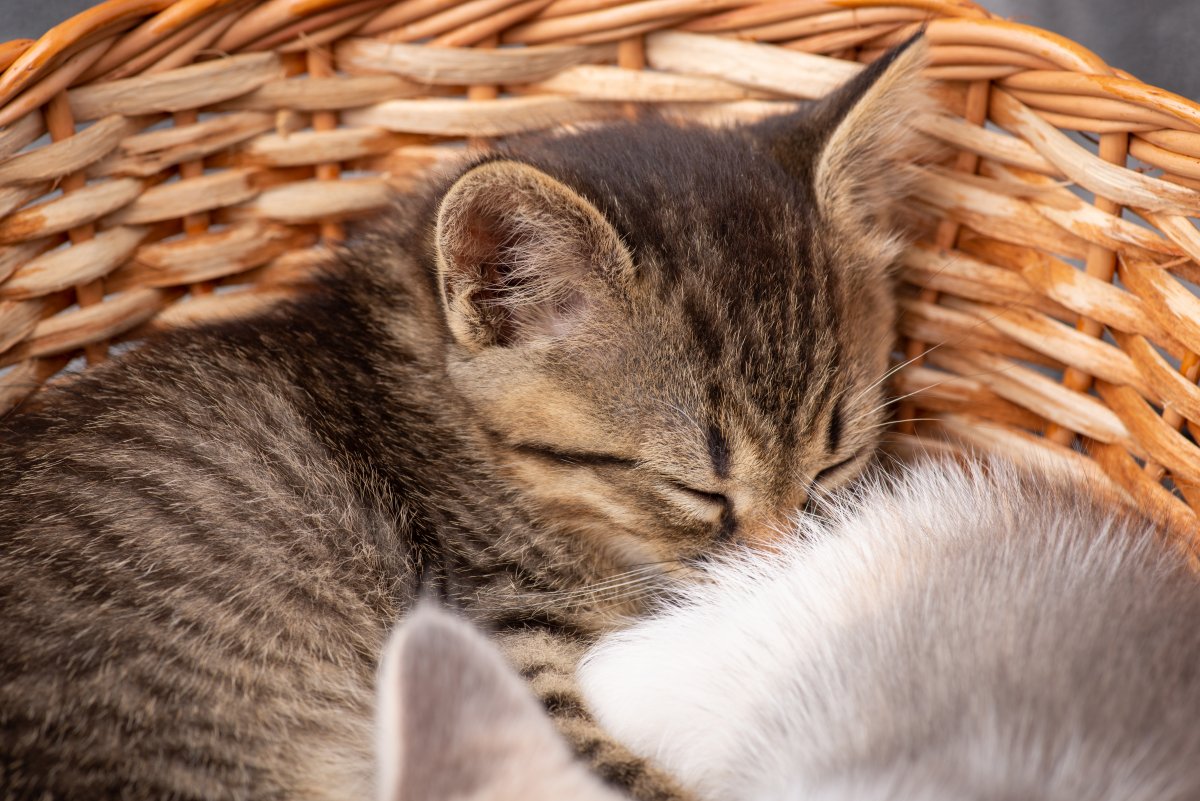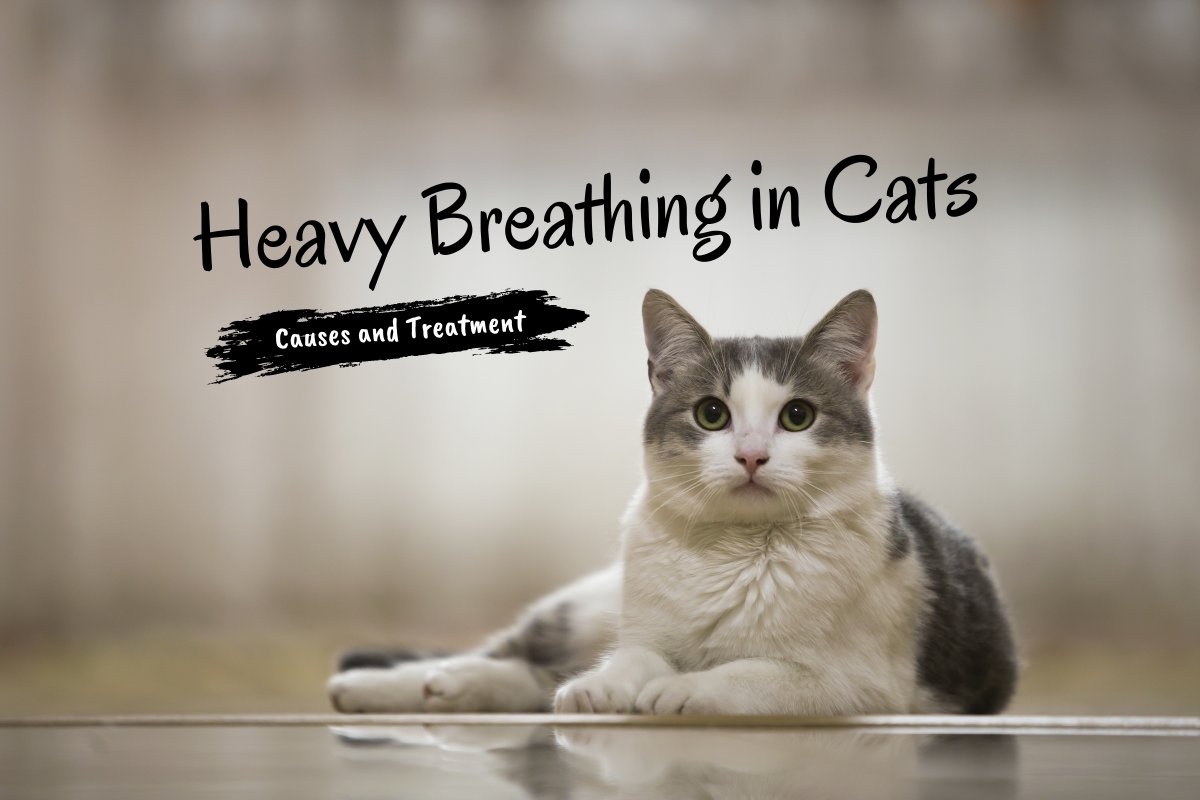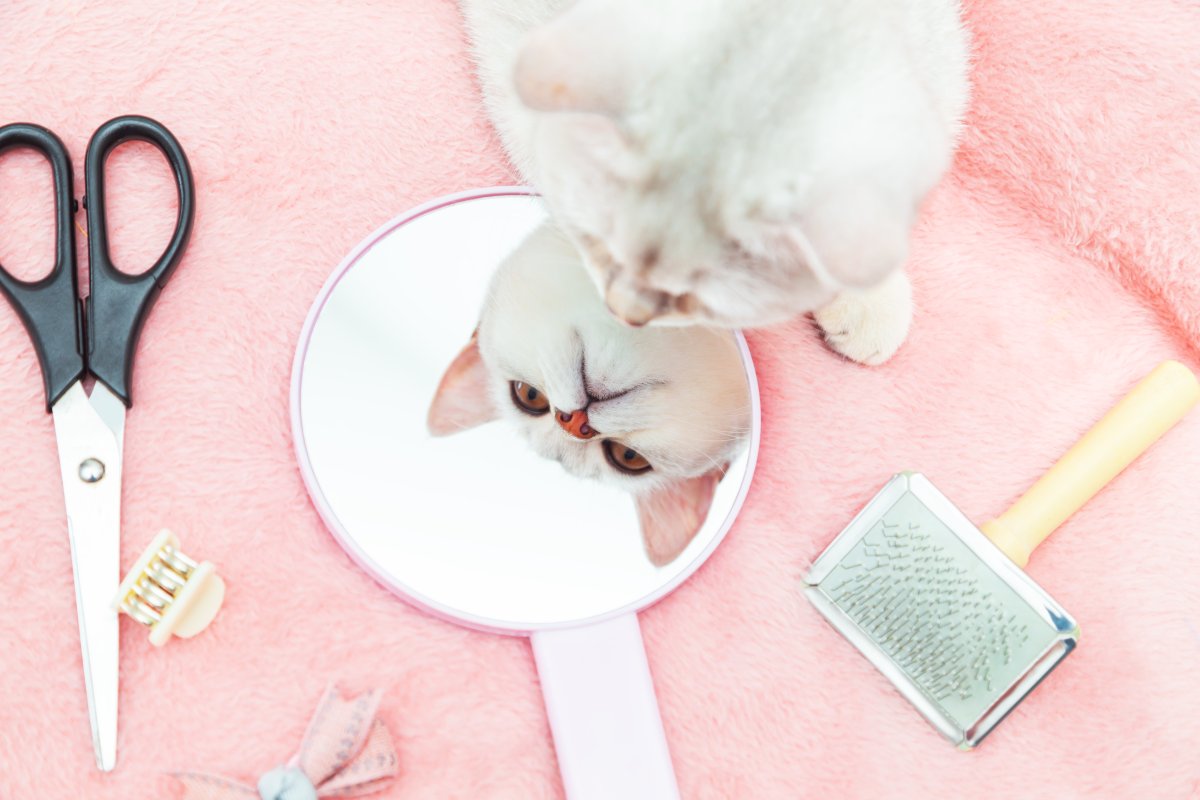Cats are lovely but fragile animals; therefore, pet owners take care of almost everything from feeding to cleaning their cats. They always make sure to keep their cats healthy and fit. But what if you find your cat coughing? Seeing this can be disturbing, no doubt.
You might think that the reason behind your cat’s coughing is the passing of a hairball (a collection of dead hair and digestive juices that formed in the cat’s stomach). But that may not always be the case!
As a pet owner, you need to pay attention when your cat’s coughing gets more serious and chronic than usual. It might be associated with other symptoms that can be life-threatening to your cat.
This article will go through all the possible reasons behind cats’ coughing and how you can treat them because an early diagnosis can lead to a rapid recovery.
Do Cats Cough?
Well, we all cough, and cats are no exception. Coughing is the body’s reflex action to clear any irritating material from the respiratory tract. Cat coughing occurs when something irritates your cat’s back throat or lungs; as a result, their body responds and expels whatever is causing that irritation.
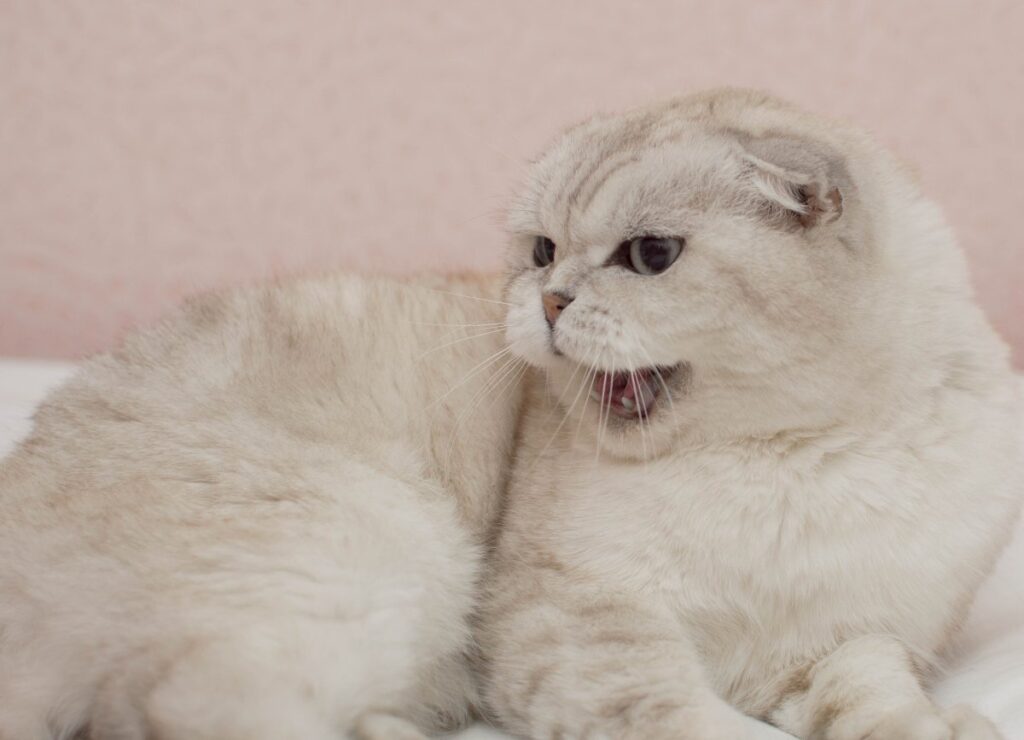
It’s important to examine if their cough is productive or non-productive because cats have different types of coughing, including a hacking cough, dry cough, gagging cough, half-cough, moist-sounding cough, etc.
Your cat’s meow says everything; pay attention!
Causes and Treatments for Cat Coughing
Some cat coughs are easy to treat, but sometimes they get serious and complicated. Here we have covered all the common causes and their best treatments.
1. Asthma
Asthma is a respiratory disorder; it causes inflammation and narrowing of the airways. Due to this reason, cats often have difficulty breathing. The causes of asthma in cats include litter or pollen dust, cigarette smoke, heavy perfume smell, or obesity.
However, this condition cannot be cured completely, but its symptoms can be alleviated with the help of medication.
Treatment
- If your cat suffers from asthma, maintaining a healthy weight and avoiding allergens and irritants as much as possible might help you control the disease.
- Oral drugs such as anti-inflammatories and Bronchodilator therapy may also aid in alleviating symptoms.
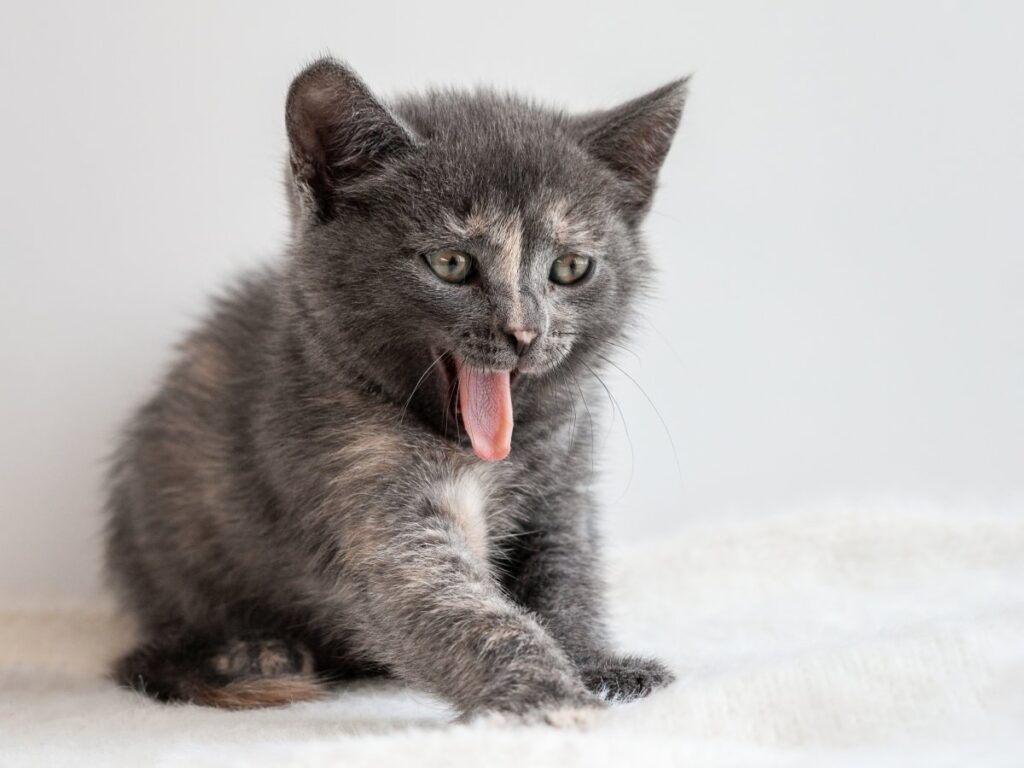
2. Allergies
Many cats are allergic to airborne molecules such as pollen. Usually, allergies are pretty common in cats and can be treated easily. Your cat may feel itchy, sneeze, or have discharge coming from its eyes and nose due to an allergy.
Treatment
Several treatments for cat allergies are available; however, it’s recommended to consult a veterinarian about your cat coughing to find a suitable one. The available treatments for cat allergies are:
- Oral allergy drugs (antihistamine or immunosuppressive drug therapy)
- Steroids (both oral and topical, depending on the situation)
- Injected allergy shot
3. Parasites
Parasites such as tapeworm, heartworm, or lungworm may cause cat coughing. In cats, parasites travel through their bloodstream and inhabit the lungs. Your cat’s life can be at risk because these parasites cause severe lung infections that lead to serious complications.
Frequent coughing, weight loss, finding worm segments in the cat’s feces, and lethargy are the main symptoms of parasite infection in cats.
Treatment
Treatment can be somewhat painless depending on the severity of the parasite infection.
- Prescribe a dewormer to kill the adult worms that are already present and have you repeat the therapy in two or more weeks
- Suggest flea and mosquito prevention
- Administer antibiotics to avoid subsequent infections like pneumonia
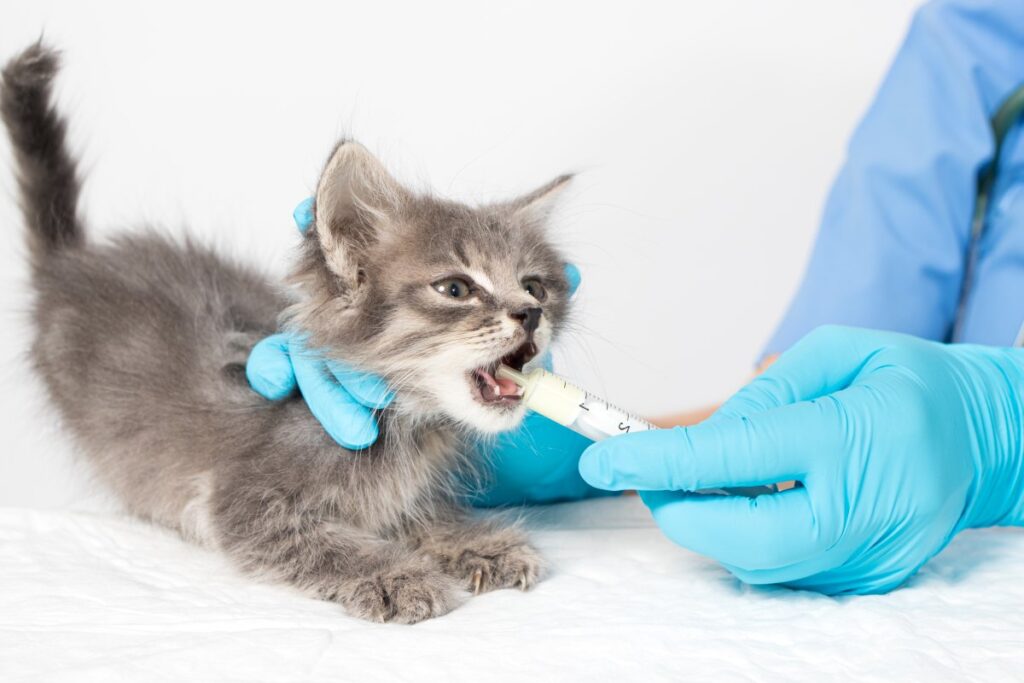
4. Hairballs
Cats usually pass hairballs after a brief cough and choking. This is normal in cats, but excessive hairballs can be quite terrible for cat owners and unpleasant for the cat itself. Fortunately, there are some easy ways you can reduce your cat’s hairballs.
Treatment
- If your cat has long hair, regular care can help prevent hairballs.
- If your cat has a double coat, the depilatory brush can help reduce the amount of hair that the cat swallows when grooming.
- If daily grooming doesn’t reduce the number of cat hairballs, you can do a few other things. For example, prescription medications and over-the-counter hairball control diets are designed to reduce the incidence of cat hairballs.
5. Acute Bronchitis
Inflammation of the bronchi in the lungs causes this illness. Although acute bronchitis in cats might resemble asthma, it is usually caused by a particular agent such as a virus or an irritant. Coughing, wheezing, tension, and, in some cases, a fever are all symptoms of this illness in cats.
Fortunately, once the agent that caused the acute bronchitis is gone, it will normally clear up on its own. A chest x-ray is generally used to identify acute bronchitis.
Treatment
- As mentioned earlier, acute bronchitis usually heals spontaneously when the irritant is removed. As a result, only supportive care is usually needed to manage the cat’s symptoms in addition to removing irritants.
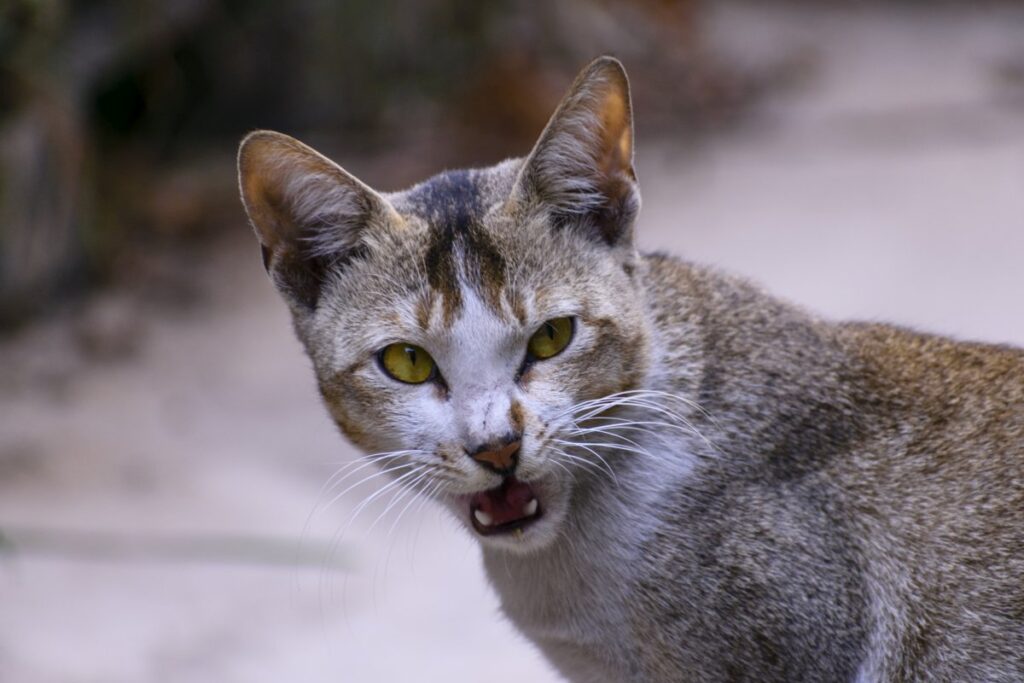
How to Prevent Coughs in Cats
- Cat flu causes infectious viruses in cats. It can be prevented by getting your cat vaccinated at an early age. Cats require booster vaccination every once a year.
- Keep your cat’s weight in the normal range. Obesity in cats often leads to coughing and also develops severe disease and conditions.
- Keep your cat away from hazardous chemicals that can be chewed and swallowed, resulting in various harmful health diseases.
- If your cat is asthmatic, using a minimum amount of potential allergens, chemicals, or air fresheners may help prevent cat coughing.
- Keep your cat in sound health by doing monthly routine health checks.
Key Takeaways
If your cat’s coughing lasts for more than a month, it may indicate any chronic condition. The mucosal surface of the lungs may be permanently damaged. In these cases, respiratory infections can be prolonged and recur.
- Targeted dietary supplements that improve mucosal repair or act as immune stimulators may help prevent cat coughing.
- Anti-inflammatory drugs can be used to reduce inflammation, especially when there is a cause of allergies and the allergen cannot be found and removed from the cat’s surroundings.
Take care of your cat; they will take care of your happiness!

